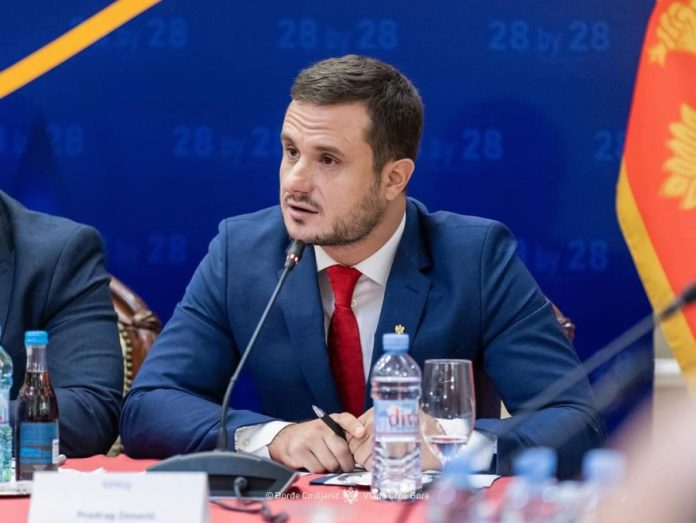The European Commission’s (EC) report highlights the acceleration of Montenegro’s European integration since the start of the 44th Government’s mandate, emphasizing the political and foreign policy stability of the country, stated Montenegro’s chief negotiator with the EU, Predrag Zenović, in an interview with RTCG Portal.
When asked how he comments on the published European Commission report on Montenegro, Zenović described it as the most positive and encouraging report so far, while also viewing it as a clear message about the complexity of the remaining European journey.
“The report highlights the acceleration of European integration since the 44th Government took office, emphasizing Montenegro’s political and foreign policy stability. Reforms in the rule of law, intergovernmental conferences the successful completion of the Reform Agenda, and the receipt of a positive IBAR have marked this year as Montenegro’s year of European integration. This small yet historic breakthrough was recognized in the report,” Zenović stated.
He emphasized that progress has been made in 30 out of 33 chapters.
“For the first time in the history of negotiations we have achieved good progress in the rule of law area since the beginning of the process, advanced in four chapters, and received a very good rating in two. Montenegro must now proceed even more decisively to complete its European reform path. And not just Montenegro’s path—leading the enlargement race signals that the enlargement policy is still viable and that the European project continues its historic mission,” Zenović said.
He also mentioned that the achieved results in the negotiations, especially the overall speed and dynamics of the process, depend on the work of the Ministry of European Affairs and the negotiating structure. He pointed out that the Ministry of European Affairs which has received praise in the report for its work, is the key coordinating mechanism of the entire European integration process.
“The dynamic and strength of the negotiations have placed a heavy burden on this ministry. This indicates that we must strengthen the team, enhance capacities in all areas, and particularly in the Ministry of European Affairs, which is the controlling, coordinating, and communication unit of the entire process of European integration,” Zenović explained.
Speaking about the appointment of the President of the Supreme Court and a series of judicial reforms he recalled that after the formation of the 44th Government, the parliamentary majority successfully carried out the process of judicial and prosecutorial appointments, enabling the functioning of the Judicial Council and the Constitutional Court, followed by the election of the Supreme State Prosecutor.
“Despite all the challenges, over the past year, we have shown that we have more capacity than ever to achieve social, political, and parliamentary consensus. The appointment of the President of the Supreme Court is not a Brussels requirement, but one of our constitutional and legal order. I believe that with the unlocking mechanism for elections achieved through IBAR amendments to the legislative framework, this important judicial instance will complete its institutional mechanism with this appointment, thus contributing to the comprehensive agenda ahead of us in the final stages for Chapter 23,” Zenović concluded.


